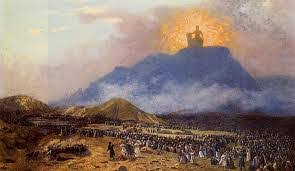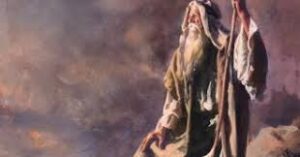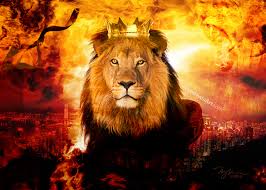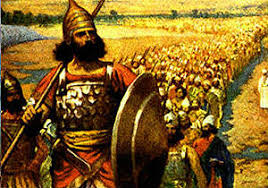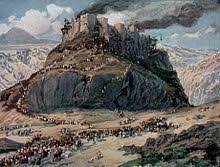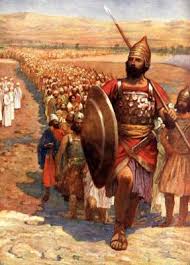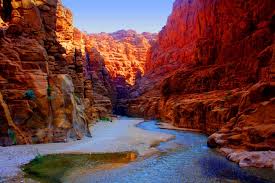Bf – God’s Chosen People 4: 32-40
God’s Chosen People
4: 32-40
God’s chosen people DIG: Isra’el the chosen people. If YHVH is known by His attributes and actions, what did the Israelites know about Him? Why does ADONAI choose Isra’el (verses 35 and 37)? In what ways do His actions fit His motive? Do you think God provided enough evidence to demonstrate His great love? Why or why not? What responses and results are expected (verses 39-40)? What suggestions does Moses give to parents to influence their children in a godly direction? Which of these, if any, do you most need to work on?
REFLECT: What events in your life do you see as God’s choosing of you? What Egypt has He taken you out of? What Mount Sinai has He spoken to you from? If God is known by His actions, what have you come to know about Him? What further evidence (of His love or your election) are you looking for? What do you believe the LORD wants from you? Why would He choose you? How are you demonstrating God’s greatness to the surrounding unbelievers in your life? What can you do this day to embrace God’s choice of you?
Moses returns to the need of Isra’el to obey ADONAI’s commandments wholeheartedly, and the motivation behind that obedience: who YHVH is and what He has done for them. He recalls for Isra’el the distinctiveness of their God, and reminds them why they were His chosen people.
In order to challenge Isra’el’s appreciation for and understanding of her God, Moses asks four rhetorical questions concerning ADONAI’s activity on her behalf.
First, indeed, ask now about the former days that were before you, from the day that God created man on the earth, and ask from one end of the sky to the other. Has there ever been such a great thing as this, or has anything like it been heard (4:32)? The invitation is thus to explore the whole panorama of human history to see if anything similar to Isra’el’s experience of God had been known before. Notice that Moses is not just saying that nothing greater has happened before, but that nothing like this at all has happened before!
Second, have people ever heard the voice of God speaking from the midst of the fire, as you have heard – and lived (4:33)? Moses was not asking, “Has anyone heard the voice of God and lived to tell about it?” Rather, he was emphasizing that no other nation had ever received direct revelation from its god (Psalm 147:19-20).
Third, for what great nation is there that has gods so near to them, as ADONAI our God is whenever we call on Him (4:7)? The only possible answer could be “No.”
And fourth, or has any god ever tried to come to take for himself a nation from within a nation – by trials like the ten plagues, by signs and wonders, and by war, and by a mighty hand and an outstretched arm, and by great terrors – like all that ADONAI your God did for you in Egypt before your eyes (4:34)? What YHVH did in and through the events of the Exodus and the revelation of His Torah on Mount Sinai were unprecedented and unparalleled. Was this all done so that later YHVH would reject and replace her? Heaven forbid!
Dear Heavenly Father, Praise You for being such a Mighty, Awesome and loving Father! When we think of Your wisdom in creating all land creatures on the sixth day (Genesis 1:24-26) by Your Word: the huge dinosaur and the tiny bunny rabbit, the swift cheetah and the slow turtle, and man with all his intricate internal systems! Praise Your Great power over fire by speaking out of a fiery bush that you kept from burning up! How Awesome Your Mighty power to take Your people out of the greatest power on earth at that time by judgment on their gods in the 10 Plagues (Exodus 12:12)! Praise You for always being near Your people (Hebrews 13:5). There is no god like you and we bow in reverent worship. In Your Holy Son’s name and power of the resurrection. Amen
Paul brings out the same argument in his letter to the church at Rome: Who are the Israelites? To them belong the adoption, and the glory, and the covenants, and the giving of the Torah, and the Temple service, and the promises. To them belong the patriarchs – and from them, according to the flesh, the Messiah, who is over all, God, blessed forever. Amen (Romans 9:4-5). Has Isra’el’s position changed? Not at all. Paul uses the present tense here, who are the Israelites. Not who were the Isrealites. These promises still belong to the Israelites today. Thus, the Hebrew Roots movement (see the commentary on Galatians, to see link click Ak – The Hebrew Roots Movement: A Different Gospel), and Replacement Theology are heretical.
It is interesting that Paul was already confronted with this heresy during his day. And his argument was especially strong in Galatians where he makes a distinction between the election of Isra’el that is eternal in the Abrahamic Covenant, and the Mosaic Covenant, which was temporary. What I am saying is this: Torah, which came 430 years later after God’s promise to Abraham was confirmed to Jacob, was an addition and does not cancel the covenant previously confirmed by God, so as to make the promise ineffective. For if the inheritance is based on the legal part of the Torah, which is the halakhah, or the rules governing Jewish life (see the commentary on The Life of Christ Ei – The Oral Law), it is no longer based on a promise; therefore, it no longer comes from a promise. But God gave [the covenant] to Abraham by means of a promise (Galatians 3:17-18 CJB). Paul makes a great distinction here. Just because Isra’el is in the diaspora does not mean that God has rejected her. This was Moshe’s argument in Deuteronomy and Paul’s argument in his letters. These were two Jews who prayed earnestly, and were concerned with the welfare of their people.133
The powerful point here is not simply that YHVH is one, or a belief in monotheism (as important as that might be). Rather, Moses proclaims that ADONAI , the God of Isra’el, is the exclusive, one-and-only true God. You were shown, so that you might know that ADONAI is God – there is no other besides Him (4:35). Moshe then circles back to remind God’s chosen people of their God’s greatness and what He has done for them.134
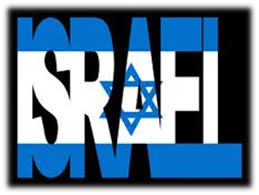
The two features of ADONAI’s love for, and election of, Isra’el are stressed here. They are God’s chosen people. From the heavens He made you hear His voice to instruct you, and on earth He caused you to see His great fire – you heard His words from the midst of the fire. Because He loved your fathers, He chose their descendants after them. Then He brought you out from Egypt with His presence, by His great power – to drive out from before you nations greater and mightier than you, to bring you in to give you their land for an inheritance, as it is this day (4:36-38). This land refers to the land of Sihon and Og which were already in Isra’el’s possession (see At – Isra’el’s Conquest of the Transjordan).
Based on all the wonderful things the LORD had done for them already. God’s chosen people are urged to acknowledge His utter uniqueness and obey His statutes (Hebrew: hachukkim, meaning to write into law permanently) and ordinances (Hebrew: hammishpatim, meaning a judgment of the court), with the result that this current generation, and all future generations, would experience YHVH’s abundant blessings. Thus, Moshe pleads on behalf of Isra’el, and he does it in the very same way that Paul does in Romans 9, 10 and 11.
When Moses gave the Torah to their parents at Mount Sinai, the emphasis was on the fear of Ha’Shem (Exodus 19:10-25), but his application of the Torah to this new generation magnified God’s love for Isra’el and the importance of the Israelites obeying God’s statutes and ordinances out of love for Him.135 So, you will know today and take to heart that ADONAI, He is God, in the heavens above and on the earth below – there is no other. The word heart is mentioned more than forty times in Moshe’s speech, and the Sh’ma (see Bw – The Sh’ma) also emphasizes love for ADONAI. You must keep His statutes and His ordinances, which I am commanding you today, so that it may go well with you and with your children after you, and so that you may prolong your days in the land that ADONAI your God is giving you for all time (4:39-40).
As seen in 4:1, Moshe is not simply holding before Isra’el the hope of a permanent home in the Promised Land as a bribe or incentive. Granted, Isra’el’s obedience or disobedience to the covenant, and God’s expectations of them, did affect whether they would remain in the Land of Promise. Nevertheless, YHVH intended that Canaan would serve as a platform for His chosen people to demonstrate His greatness to the surrounding pagan nations for the undetermined future.136




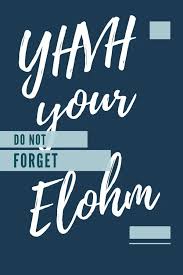
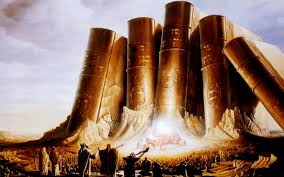
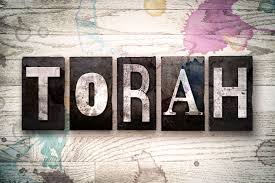
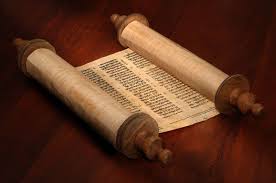
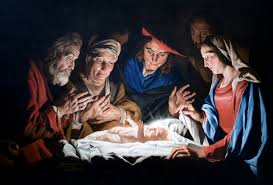 हालाँकि ईसाई परंपरा और कला ने अक्सर चरवाहों और पंडित दोनों को नवजात शिशु यशुआ के साथ-साथ जाने में चित्रित किया है, लेकिन वे कभी भी सुसमाचार के भीतर एक ही सांस में जुड़े या उल्लिखित नहीं होते हैं। लुका बुद्धिमान पुरुषों के बारे में जानने का कोई संकेत नहीं दिखाता है और मथी कभी चरवाहों का उल्लेख नहीं करता है। जब बुद्धिमान लोग यीशु के घर में मिलने आते हैं, तो उन्होंने बच्चे को उसकी माँ के साथ देखा (मत्ती २: ११a)। केवल मैटिआटाहु ने अपने पुत्र की हत्या से बचने के लिए मिस्र में जोसफ और मैरी के भागने का वर्णन किया जो हेरोड द पैरानॉयड (मत्ती २:१३-१८) में उनके बेटे की हत्या से बचने के लिए किया गया था, और फिर उनकी नासिक में वापसी हुई जहाँ यीशु ने बचपन बिताया (मथी २:१९-२३) –)। चरवाहे मसीहा की पूजा करते थे (लूका २:१६); लेकिन, पंडित ने एक घर में मसीह की पूजा की (मत्ती २:११)। नतीजतन, चरवाहों और पंडित के खातों को कम से कम दो साल से अलग किया जाता है।
हालाँकि ईसाई परंपरा और कला ने अक्सर चरवाहों और पंडित दोनों को नवजात शिशु यशुआ के साथ-साथ जाने में चित्रित किया है, लेकिन वे कभी भी सुसमाचार के भीतर एक ही सांस में जुड़े या उल्लिखित नहीं होते हैं। लुका बुद्धिमान पुरुषों के बारे में जानने का कोई संकेत नहीं दिखाता है और मथी कभी चरवाहों का उल्लेख नहीं करता है। जब बुद्धिमान लोग यीशु के घर में मिलने आते हैं, तो उन्होंने बच्चे को उसकी माँ के साथ देखा (मत्ती २: ११a)। केवल मैटिआटाहु ने अपने पुत्र की हत्या से बचने के लिए मिस्र में जोसफ और मैरी के भागने का वर्णन किया जो हेरोड द पैरानॉयड (मत्ती २:१३-१८) में उनके बेटे की हत्या से बचने के लिए किया गया था, और फिर उनकी नासिक में वापसी हुई जहाँ यीशु ने बचपन बिताया (मथी २:१९-२३) –)। चरवाहे मसीहा की पूजा करते थे (लूका २:१६); लेकिन, पंडित ने एक घर में मसीह की पूजा की (मत्ती २:११)। नतीजतन, चरवाहों और पंडित के खातों को कम से कम दो साल से अलग किया जाता है।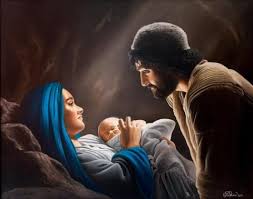 यीशु के जन्म और प्रारंभिक जीवन के बारे में ध्यान देने योग्य एक बात यह है कि हम जो कुछ भी जान सकते हैं वह केवल मत्ती और लूका में पाया जाता है। मरकुस और यूहन्ना में नहींl केवल मत्तित्याहू और लूका वास्तव में हमें कहानी या मसीह के जन्म और प्रारंभिक जीवन के बारे में बताते हैं। हालांकि, कहानी दो अलग-अलग दृष्टिकोणों से बताती है। मत्ती हमें यूसुफ के दृष्टिकोण से कहानी बताता है, जबकि लूका मरियम के परिप्रेक्ष्य से एक ही कहानी को बताता है। मत्तित्याहू में, यूसुफ की सक्रिय भूमिका निभाते हैं जबकि मरियम एक निष्क्रिय भूमिका निभाती हैं। मत्तित्याहू ने जो यूसुफ सोच रहा है, अभिलेख करता है, लेकिन मरियम क्या सोच रही है को नहीं। यह दर्ज किया गया है कि स्वर्गदूत यूसुफ के पास कैसे आए, परन्तु स्वर्गदूत मरियम के सामने नहीं आये। इसके विपरीत, लूका का सुसमाचार मरियम के परिप्रेक्ष्य से कहानी को बताता है। लूका के सुसमाचार में मरियम सक्रिय भूमिका निभाती है जबकि यूसुफ निष्क्रिय भूमिका निभाता है। यह दर्ज किया गया है कि कैसे स्वर्गदूत मरियम को दिखाई देते हैं, लेकिन यूसुफ को कोई नहीं। लूका ने बताया कि मरियम क्या सोच रही है और यूसुफ क्या सोच रहा है।
यीशु के जन्म और प्रारंभिक जीवन के बारे में ध्यान देने योग्य एक बात यह है कि हम जो कुछ भी जान सकते हैं वह केवल मत्ती और लूका में पाया जाता है। मरकुस और यूहन्ना में नहींl केवल मत्तित्याहू और लूका वास्तव में हमें कहानी या मसीह के जन्म और प्रारंभिक जीवन के बारे में बताते हैं। हालांकि, कहानी दो अलग-अलग दृष्टिकोणों से बताती है। मत्ती हमें यूसुफ के दृष्टिकोण से कहानी बताता है, जबकि लूका मरियम के परिप्रेक्ष्य से एक ही कहानी को बताता है। मत्तित्याहू में, यूसुफ की सक्रिय भूमिका निभाते हैं जबकि मरियम एक निष्क्रिय भूमिका निभाती हैं। मत्तित्याहू ने जो यूसुफ सोच रहा है, अभिलेख करता है, लेकिन मरियम क्या सोच रही है को नहीं। यह दर्ज किया गया है कि स्वर्गदूत यूसुफ के पास कैसे आए, परन्तु स्वर्गदूत मरियम के सामने नहीं आये। इसके विपरीत, लूका का सुसमाचार मरियम के परिप्रेक्ष्य से कहानी को बताता है। लूका के सुसमाचार में मरियम सक्रिय भूमिका निभाती है जबकि यूसुफ निष्क्रिय भूमिका निभाता है। यह दर्ज किया गया है कि कैसे स्वर्गदूत मरियम को दिखाई देते हैं, लेकिन यूसुफ को कोई नहीं। लूका ने बताया कि मरियम क्या सोच रही है और यूसुफ क्या सोच रहा है।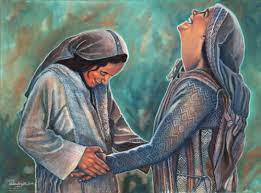 ऐतिहासिक रूप से, लूका अन्य तीन सुसमाचारों से पहले अपनी पुस्तक लिखनी शुरू करता है। स्वर्ग चार सौ वर्षों से चुप रहा था जब स्वर्ग दूत जिब्राईल ने इस दुनिया में मंदिर में धूप की सुनहरी वेदी के अंधेरे से छेड़छाड़ की ताकि यूहन्ना बप्तिस्मादाता, जकर्याह नाम के एक बुजुर्ग पुजारी के लिए मसीहा के अग्रदूत के जन्म की घोषणा की जा सके। Christ (मसीह) अंग्रेजी अनुवाद है, और मसीहा हिब्रू शीर्षक मेशियाख़ का यूनानी समकक्ष है, जिसका अर्थ अभिषिक्त है। यह विशेष रूप से यहूदी दुनिया में अनुमानित छुटकारा देने वाले के लिये उपयोग किया गया था जो तनख़ की भविष्यवाणियों को पूरा करने में परमेश्वर का प्रतिनिधि होगा; उत्पत्ति ४९:१०; भजन संहिता २ और ११०; यशायाह ९:१-७ और ११:१-९; और जकर्याह ९:९-१०। अनुमानित मसीहा ही यीशुहा-मेशियाख़ है।इस खंड में तीन गीत हैं: एलिजाबेथ के द्वारा मरियम का अभिवादन (देखें
ऐतिहासिक रूप से, लूका अन्य तीन सुसमाचारों से पहले अपनी पुस्तक लिखनी शुरू करता है। स्वर्ग चार सौ वर्षों से चुप रहा था जब स्वर्ग दूत जिब्राईल ने इस दुनिया में मंदिर में धूप की सुनहरी वेदी के अंधेरे से छेड़छाड़ की ताकि यूहन्ना बप्तिस्मादाता, जकर्याह नाम के एक बुजुर्ग पुजारी के लिए मसीहा के अग्रदूत के जन्म की घोषणा की जा सके। Christ (मसीह) अंग्रेजी अनुवाद है, और मसीहा हिब्रू शीर्षक मेशियाख़ का यूनानी समकक्ष है, जिसका अर्थ अभिषिक्त है। यह विशेष रूप से यहूदी दुनिया में अनुमानित छुटकारा देने वाले के लिये उपयोग किया गया था जो तनख़ की भविष्यवाणियों को पूरा करने में परमेश्वर का प्रतिनिधि होगा; उत्पत्ति ४९:१०; भजन संहिता २ और ११०; यशायाह ९:१-७ और ११:१-९; और जकर्याह ९:९-१०। अनुमानित मसीहा ही यीशुहा-मेशियाख़ है।इस खंड में तीन गीत हैं: एलिजाबेथ के द्वारा मरियम का अभिवादन (देखें 
